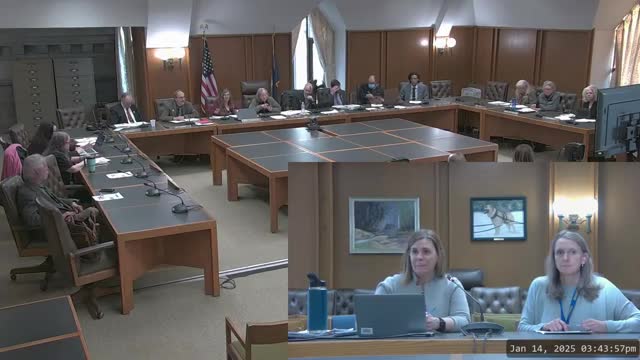DHHS food protection section reviews retail, dairy, shellfish and homestead regulation
Get AI-powered insights, summaries, and transcripts
Subscribe
Summary
DHHS Food Protection described its retail‑food inspection program, dairy sanitation and shellfish programs, homestead exemptions, emergency guidance and plans for H5N1 dairy surveillance coordination with agriculture.
Erica Davis, section administrator of Food Protection within the Department of Health and Human Services, briefed the committee on the section’s licensing and inspection programs for retail food establishments, dairy processing and shellfish sanitation.
Davis said the section adopts the 2017 FDA Food Code by reference for licensed retail operations and inspects restaurants, grocery stores, school food operations, mobile units and other food establishments; the program licenses about 4,900 retail establishments statewide and uses risk‑based inspection frequencies ranging from annually to every three years. Homestead food operators are split into two categories: licensed/inspected “non‑exempt” homestead operations that fall under DHHS rules and “exempt” homestead operators whose sales and products meet statutory limits and therefore do not fall under DHHS inspection.
Davis briefed the committee on the dairy sanitation program, an FDA cooperative program that covers farms, milk haulers and pasteurizers; the section runs milk sampling and equipment testing and works with the Veterinary Diagnostic Laboratory on testing. She said the department is coordinating with the Department of Agriculture on H5N1 milk testing and noted the FDA cooperative program requires audits of state operations.
The beverage and bottled water program licenses in‑state manufacturers and registers out‑of‑state producers that ship water or nonalcoholic beverages into New Hampshire. The shellfish sanitation program (also an FDA cooperative program) regulates molluscan shellfish for interstate commerce and works with Fish and Game and DES to set harvest and shipping conditions.
The Food Protection section also administers consumer complaint intake, recall notifications and emergency guidance for establishments during power outages, floods or boil‑water orders. Davis said the division posts guidance resources online and maintains an emergency action plan for food establishments; operators are required under administrative rules to report imminent health hazards so DHHS can assist with mitigation and ensure a safe food supply.
